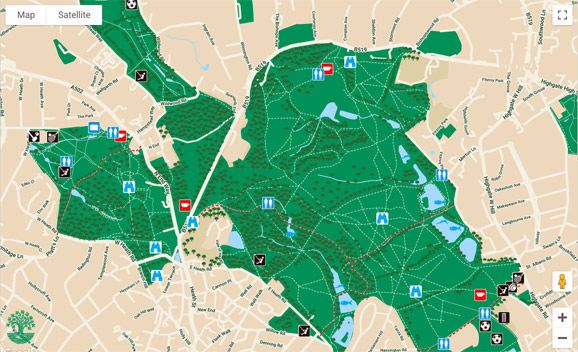Marie-Louise von Motesiczky (1906-1996)
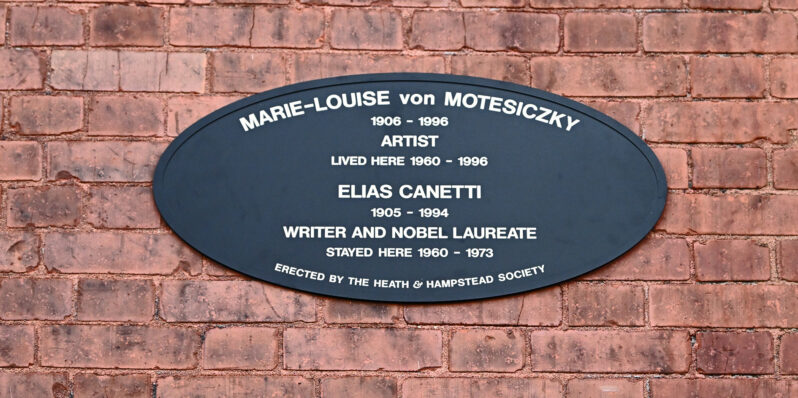
Marie-Louise von Motesiczky was an Austrian painter. Born into a distinguished and cultured family in Vienna, she left school at only 13 and attended art classes across Europe. Invited to join Max Beckmann’s master class in Frankfurt, his influence on her work can be seen in her early portraiture and still-lifes. (more…)
Elias Canetti (1905-1994)

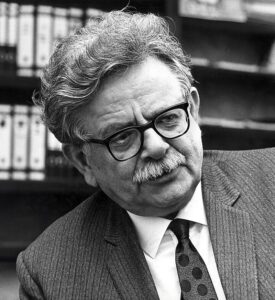 Elias Canetti was born in Bulgaria into a Sephardi Jewish family, and his peripatetic life made him a true cosmopolitan long before he left Vienna in 1938, arriving in Britain later that year, where he became a naturalised subject in 1952. He was already a published author excelling in penetrating, often ironic psychological observation, but largely unknown in Britain where his work was yet to be translated from German into English. The first to appear was his novel Die Blendung (1935), translated by C.V. Wedgwood as Auto-da-Fé (1946).
Elias Canetti was born in Bulgaria into a Sephardi Jewish family, and his peripatetic life made him a true cosmopolitan long before he left Vienna in 1938, arriving in Britain later that year, where he became a naturalised subject in 1952. He was already a published author excelling in penetrating, often ironic psychological observation, but largely unknown in Britain where his work was yet to be translated from German into English. The first to appear was his novel Die Blendung (1935), translated by C.V. Wedgwood as Auto-da-Fé (1946).
Canetti was involved with many women, but the relationship with Marie-Louise von Motesiczky was one of the most consistent. Their correspondence across nearly fifty years (now in Tate’s Archive) is testimony to the vital role they played in each other’s lives. He encouraged Marie-Louise as an artist, and she gave him a haven where he could keep his library and write. The most notable outcome of this was one of the works that contributed to his citation for the Nobel Prize for Literature in 1981: Masse und Macht (1960), translated by Carol Stewart as Crowds and Power (1962), a psychological study of the history of human behaviour informed by his direct experience of the inter-War years.
After his second marriage in 1971, Canetti settled in Zurich where he died in 1994. Three volumes of autobiography were published between 1977 and 1985, while the excoriating fragmentary memoir of his initial time in England, Party in the Blitz, that he wrote at the end of his life, was first published in English in 2005, translated by Michael Hofmann with an afterword by Jeremy Adler.
Sir Isaiah Berlin (1909-1997)
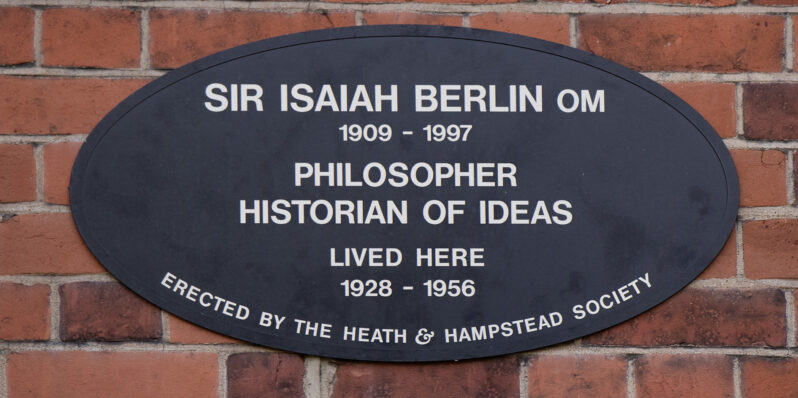
Sir Isaiah Berlin was a naturalised British philosopher, political theorist and historian of ideas who was noted for his writings on political philosophy and the concept of liberty. He is regarded as of the founders of the discipline now known as intellectual history. (more…)
Maggie’s Corner
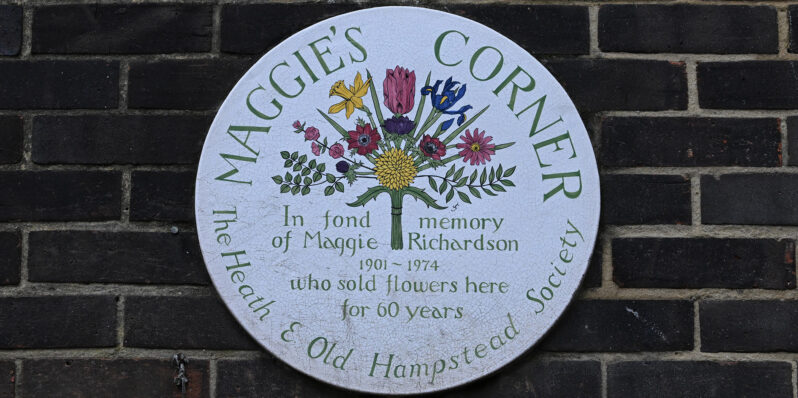
“On the corner of Willoughby Road where it meets Haverstock Hill, Maggie the redoubtable had her flower-stall – she was there for 60 years and, since she died in 1974, must have started at the beginning of, or just before, the First World War. There’s a plaque in her memory on the wall. (more…)
Jennifer Vyvyan (1925-1974)
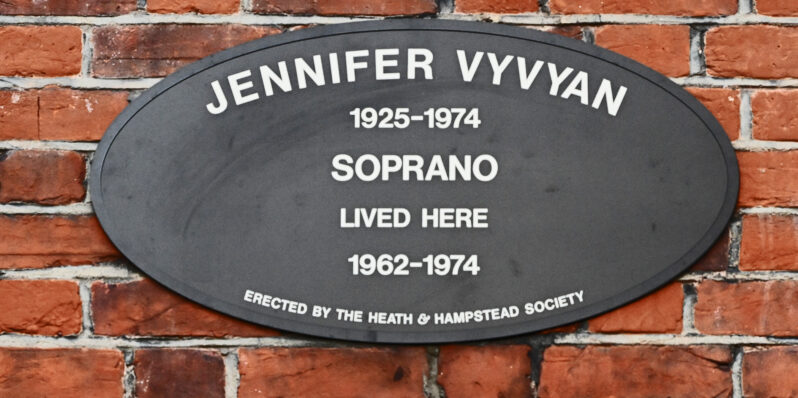
Jennifer Vyvyan was one of the leading British sopranos of her time: she was closely associated with the composer Benjamin Britten, who wrote major roles for her in his operas. (more…)
J B Priestley (1894-1984)
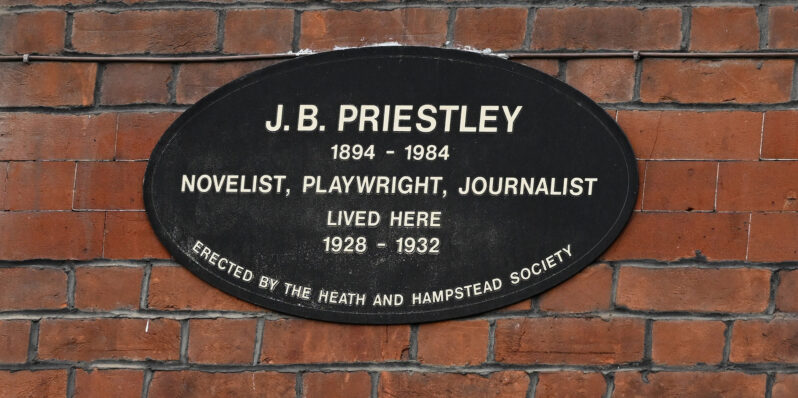
 John Boynton Priestley was born at Manningham, Bradford in the West Riding of Yorkshire. His father, Jonathan, was a schoolmaster and his mother, Emma, had worked in one of Bradford’s woollen mills. She died when John was just two years old and he was brought up by his father’s second wife, Amy, who treated him kindly. (more…)
John Boynton Priestley was born at Manningham, Bradford in the West Riding of Yorkshire. His father, Jonathan, was a schoolmaster and his mother, Emma, had worked in one of Bradford’s woollen mills. She died when John was just two years old and he was brought up by his father’s second wife, Amy, who treated him kindly. (more…)
Gerald Isaaman (1933-2019)
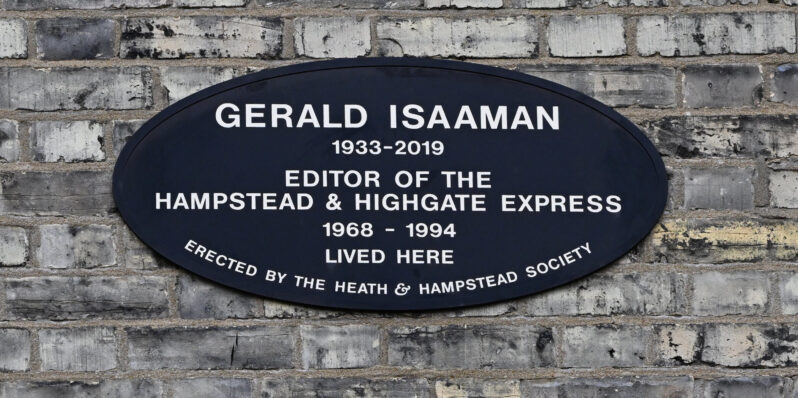
Gerald (always known as Gerry) Isaaman was born in Burnt Oak, north London. He was one of the four children of Lily (nee Finklestein) and Asher Isaaman, an upholsterer. (more…)
Christopher Wade (1921–2015)
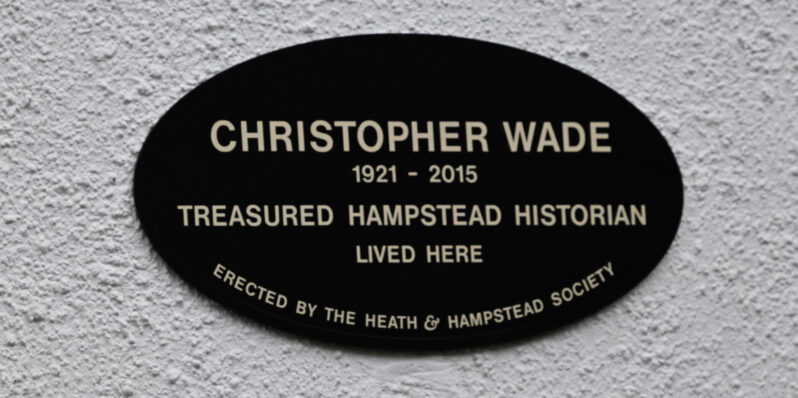
Christopher was the youngest of three sons born to Eileen and Henry Oswald Wade. He was sent to a preparatory school in Margate, then to Shrewsbury and he read modern languages at Trinity College, Cambridge. (more…)
Alfred Harmsworth Lord Northcliffe (1865-1922)
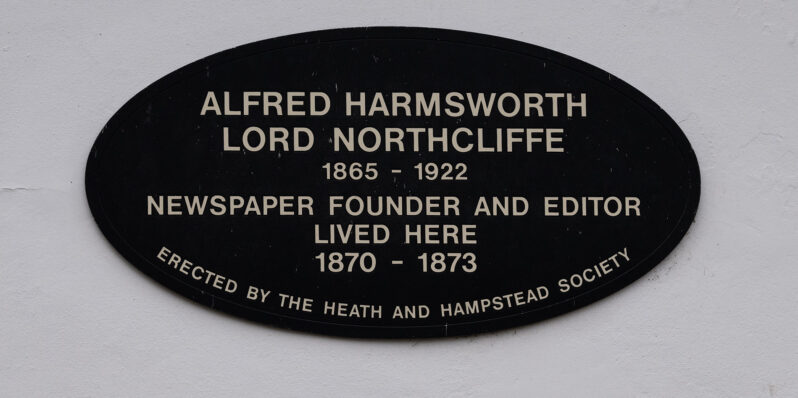
Alfred Harmsworth, 1st Viscount Northcliffe, was a British newspaper and publishing magnate. Owner of the Daily Mail and Daily Mirror, he was an early developer of popular journalism. (more…)
John Lewis and John Spedan Lewis
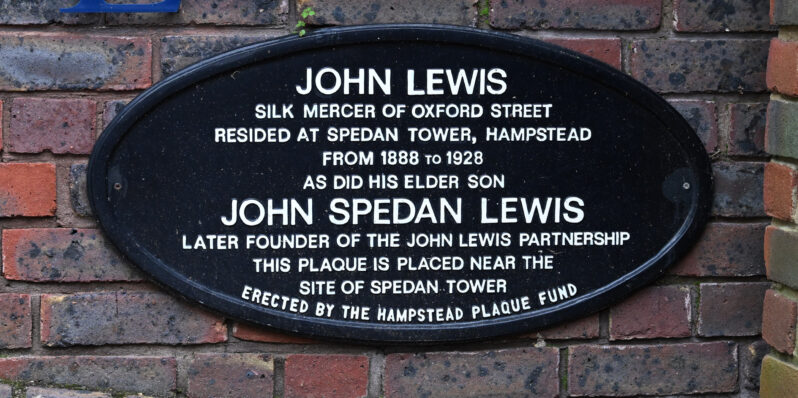
John Lewis (1838-1928) was a philosopher and town councillor. He was the founder of the John Lewis department store and the department store chain. (more…)
